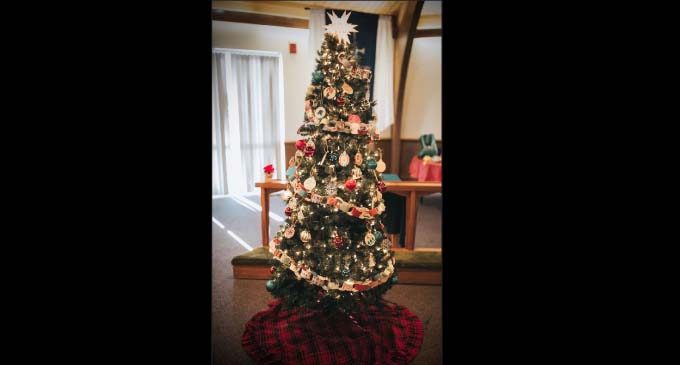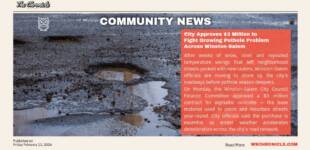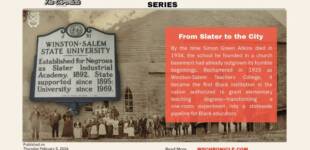Memory Makers: Making memories for two
Memory Makers Ornament Tree

By Melissa Welch
When one considers vulnerable populations in the U.S., impoverished children, individuals facing homelessness, orphans, and other populations come to mind. One population that is often overlooked: People with dementia and their caregivers.
Imagine for a moment that you and your spouse have been involved in your church for a long time. You have developed connections and friendships to most of the individuals there. Then one day, your spouse begins exhibiting signs of dementia. As time goes on, he or she begins to not only have problems with their memory, but also begins to say socially inappropriate things. Neuropsychological testing and imaging confirm your worst fears. Your spouse is diagnosed with dementia.
Sunday after Sunday, the church that you used to love going to seems a little less “warm.” You drop Sunday school from your weekly activities after your spouse makes a rude comment in response to one of the discussion questions. You know that people are aware of your spouse’s dementia because you have been open about it. Yet, you notice people avoiding conversations with both of you. When they do talk to you, their discomfort only magnifies yours. You are surrounded by a group of people and yet you have never felt so alone. Eventually, getting your spouse to church becomes quite burdensome, so you stop going altogether.
Social isolation is just one of the many burdens caregivers face. Caregivers of all age groups report poorer physical and emotional health than their counterparts (Gallup-Healthways, 2011). Caregiver stress has been linked to financial strain, self-neglect, decreased sleep and unhealthy eating. Even more importantly, the Centers for Disease Control and Prevention reports that caregivers can have “increased risk of early death.”
Caregivers and those who are facing dementia need opportunities to engage, to bond with each other, to be accepted, to laugh and to decompress. They are grieving so many losses. Caregivers need opportunities where they can make “memories for two.” They know that in time, the person they love will continue to lose function and their ability to communicate.
Memory Cafes were first started in Europe. In 1997, Dr. Bere Miesen introduced the idea of memory cafes to reduce stigma for those who have dementia and their loved ones. Memory cafes have been recognized for reducing social isolation and providing brain stimulation. Dementia is never mentioned during the café, as our focus is making memories and not on the disease itself. These gatherings are growing in popularity across the United States. North Carolina now hosts about 20, several of which are in the Triad region.
Novant Health opened its first memory café, “Memory Makers,” on Aug. 7, 2019, through funding by the Novant Health Forsyth Medical Center Foundation. This February will be our third Memory Makers event. Our cafes are held at Mount Carmel United Methodist Church in Winston-Salem from noon to 2 p.m.
Now, people who are in similar situations as the above scenario have a place to go and in the words of one of our participants, “It’s a place where we can just ‘be’.”
Our last “Memory Makers” event was so special. We had a “Memory Tree Farm” theme. A professional photographer was hired to capture the moment for those who participated. Ornaments were made collaboratively by participants to represent their lives. Some of the ornaments were given to us so that we could represent their lives year after year on our Christmas tree at the clinic. Others went home with participants to serve as a visual reminder of the “making memories” with their loved one.
Memory Makers is free and open to the community, but RSVPs are required as lunch is provided. To register for the February event, please call 336-718-7300 or email Melissa Welch, mnwelch@novanthealth.org for more information.










